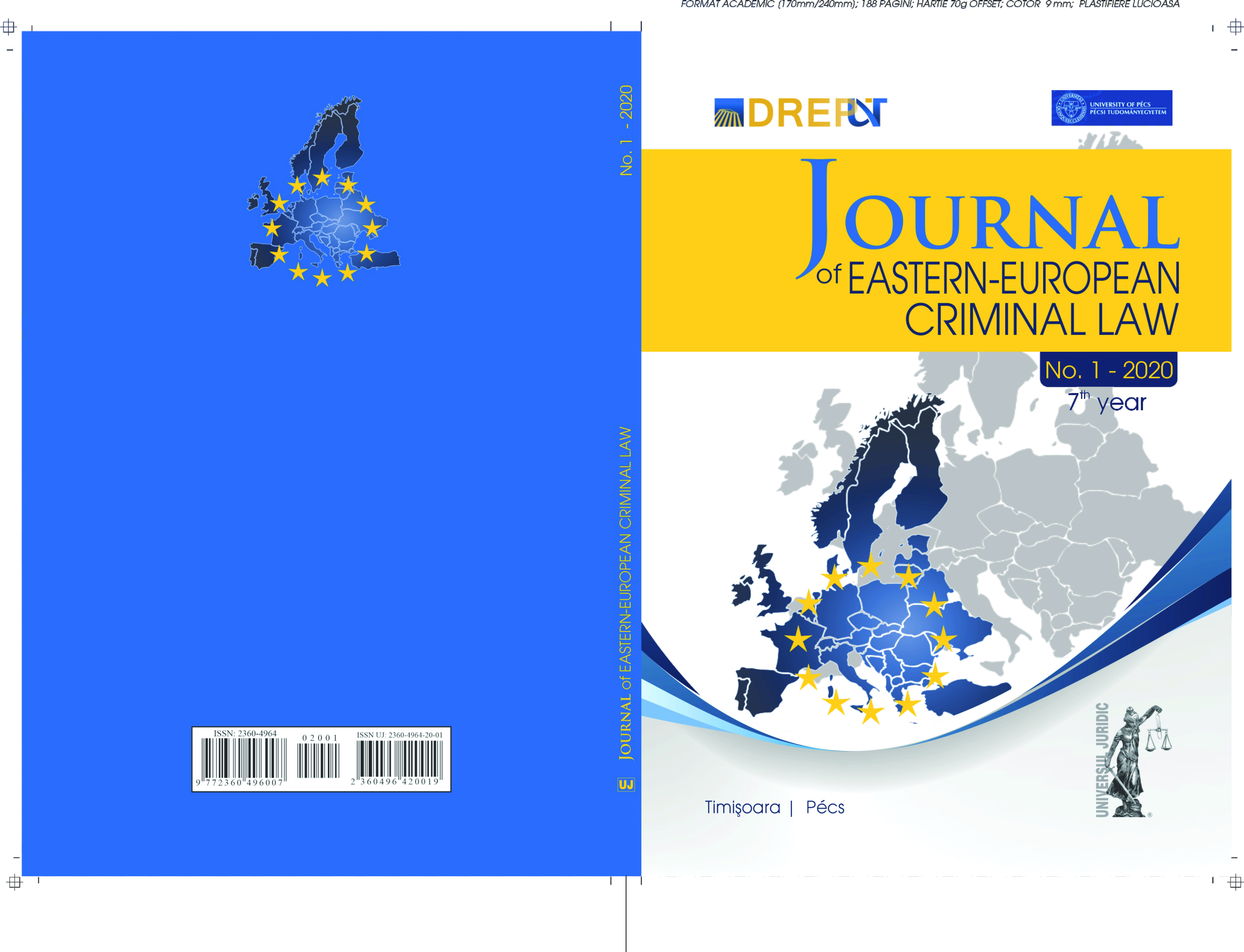Juvenile Institutional Criminal Sanctions in The Law System of Republic of Serbia
Juvenile Institutional Criminal Sanctions in The Law System of Republic of Serbia
Author(s): Dragan JovaševićSubject(s): Law, Constitution, Jurisprudence, Civil Law
Published by: Universul Juridic
Keywords: code; juvenile; crime; sanctions; measures; prison; education; court;
Summary/Abstract: All material (corporeal), processing and executive provisions related to criminal law in Republic of Serbia about juveniles are, in the new Law about juvenile committers and criminal law protection of juveniles from 2006. January 1st (LAJCCA), conjoint in one place. That is how the juvenile criminal law has been created. It is characterized as follows: 1) principally, inquest of the juvenile injurers guilt is excluded, 2) among criminal sanctions towards juvenile injurers the priority belongs to the educable provisions comparing to the punishment that presents the exception expressed in juvenile jail implementation. By the way of exception with the juvenile jail can be punished only the older juvenile if he committed a crime for which the proposed punishment is over five years, if he is sufficiently mentally mature that he can understand importance of that crime and he control his acts and if the consequences of the committed crime are that grand, and the extent of guilt that high when the application of educative provisions wouldn’t be justified, 3) in the criminal proceeding towards juveniles, prosecution and juridical apparatus have wide authority in terms of starting, processing and terminating the proceeding. Those authorities consist of discrete rights to withdraw prosecution no matter what is the committed crime, if it is considered that it would be useful in terms of education and reeducation of the juvenile delinquent. The principle of utility has the priority than the principle of objectiveness. The court mandates consist of not only a wide scale of optional means and provisions, but of possibility to replace already delivered verdict with some other more convenient provision, if it is required by the specific situation and 4) in juridical system of the Republic of Serbia there are special jurisdictional bodies for struggle against juvenile criminality: special departments for juvenile delinquency in internal affairs agencies, a prosecuting attorney for juveniles and special juvenile council i.e. the juvenile court that supervises the whole criminal proceeding against any juvenile delinquent. The juvenile court is represented with lay judges that have competences and personal qualities whereby can influence the juvenile delinquent. In the process the special role belongs to the authorities of social welfare. The new juvenile criminal law anticipates two basic types of the juvenile criminal sanctions. These are: 1) the educational measures and 2) the juvenile prison. They are legally anticipated measures of the social reaction towards the juvenile committers of the crime activities that are sentenced the legally determined organs (the district court – the judge for the juveniles and the tribunal for the juveniles) in aim to protect the society from the criminality trough the education, reeducation and proper development of the juvenile. Beside and instead of sanctions, the new criminal legislature recognizes also the special type of measures – the educational dictates (orders) as the alternative measures that have the aim the deflecting of the criminal proceeding towards the juveniles (la diversion) to the other measures application. In this paper the author has analysed theoretical and practical aspects of institutional criminal sanctions for juvenile criminal offenders in new criminal law of Republic of Serbia.
Journal: Journal of Eastern European Criminal Law
- Issue Year: 2020
- Issue No: 01
- Page Range: 95-111
- Page Count: 17
- Language: English
- Content File-PDF

